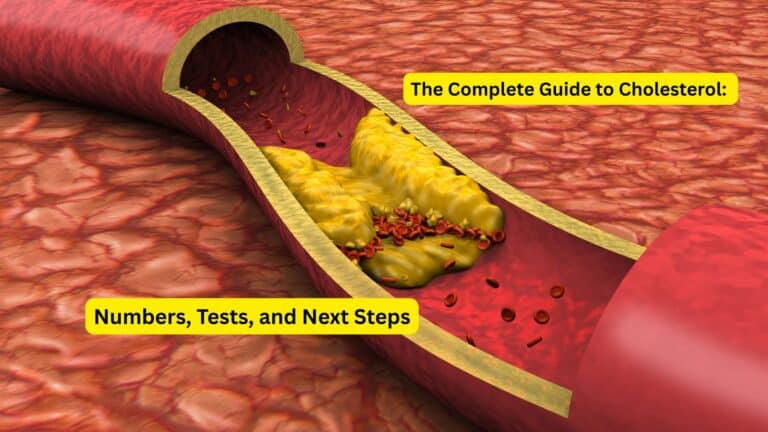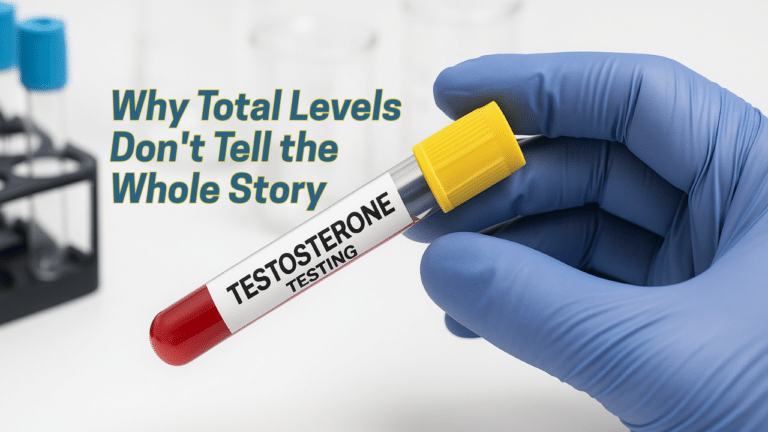Sleep isn’t just about feeling rested—it’s one of your immune system’s most powerful allies. During those crucial hours of rest each night, your body orchestrates a complex symphony of immune processes that strengthen your defenses against illness and infection. Research consistently shows that people who get adequate, quality sleep are significantly less likely to get sick after being exposed to viruses, while those who skimp on sleep face weakened immunity and slower recovery times.
This intricate relationship between sleep and immune function affects everything from your body’s ability to fight off the common cold to how well vaccines work in your system. Understanding this connection can help you make informed decisions about your sleep habits and overall health strategy, including when immune system testing might be beneficial for monitoring your body’s defense mechanisms.
How Sleep Strengthens the Immune System
Quality sleep acts as a nightly tune-up for your immune system, providing essential time for repair, maintenance, and preparation for future threats. During sleep, your body ramps up production of infection-fighting cells and protective proteins that serve as your first line of defense against pathogens.
Sleep Boosts Cytokine Production
One of sleep’s most important immune functions involves cytokine production and regulation. Cytokines are small proteins that coordinate your immune response, acting as messengers between cells to orchestrate inflammation, healing, and pathogen elimination. Certain protective cytokines are primarily produced during sleep, particularly during deep sleep stages. When you don’t get enough rest, your body produces fewer of these crucial immune signaling molecules, leaving you more vulnerable to infection.
Enhanced Immune Memory Formation
Sleep plays a vital role in forming and strengthening immune memory, much like how it helps consolidate learning and regular memories. During deep sleep phases, your immune system reviews and catalogues information about threats it has encountered, creating stronger, more efficient responses for future encounters. This process directly impacts how well your body responds to vaccinations and builds long-term protection against diseases you’ve previously fought off.
T Cell Function and Antibody Response
Sleep significantly enhances the function of T cells, which are critical white blood cells that identify and eliminate infected cells. Research shows that adequate sleep improves T cell adhesion, helping these immune warriors more effectively stick to and destroy their targets. Additionally, sleep supports optimal antibody production, ensuring your body can produce the specific proteins needed to neutralize particular threats.
The Cost of Sleep Deprivation on Immunity
When you consistently shortchange your sleep, you’re essentially weakening your immune system’s ability to protect you. The consequences extend far beyond feeling tired, creating measurable increases in infection risk and impaired immune responses.
Increased Infection Rates
Multiple studies have demonstrated that people who sleep less than seven hours per night are nearly three times more likely to develop a cold when exposed to rhinoviruses compared to those who sleep eight hours or more. This relationship holds true for various infections, including influenza and even COVID-19, where sleep-deprived individuals showed higher infection rates and more severe symptoms.
Chronic Inflammation and Immune Disorders
Sleep deprivation triggers a state of chronic low-grade inflammation in the body, characterized by elevated levels of inflammatory markers like C-reactive protein and interleukin-6. This persistent inflammatory state not only makes you more susceptible to acute infections but also increases your risk of developing autoimmune conditions, where your immune system mistakenly attacks healthy tissues.
Impaired Vaccine Response
Perhaps one of the most concerning effects of poor sleep is its impact on vaccine effectiveness. Studies show that people who are sleep-deprived when receiving vaccinations produce significantly fewer antibodies in response to the vaccine. This means that even when you take proactive steps to protect your health through vaccination, inadequate sleep can undermine these efforts, leaving you less protected than intended.
The Science of Sleep Cycles and Immunity
Your immune system doesn’t operate randomly during sleep—it follows the natural rhythms of your sleep cycles, with different immune processes occurring during specific stages of rest. Understanding these patterns helps explain why both sleep duration and sleep quality matter for immune function.
Slow-Wave Sleep and Immune Cell Activity
Slow-wave sleep, also known as deep sleep, represents the most restorative stage of your sleep cycle and the most critical period for immune function. During this phase, your body experiences peak growth hormone release, which stimulates tissue repair and immune cell production. T helper cells, which coordinate immune responses, show increased activity during slow-wave sleep, while the production of infection-fighting white blood cells reaches its daily peak.
REM Sleep and Stress Hormone Balance
REM (Rapid Eye Movement) sleep serves a unique role in immune regulation by helping balance stress hormones that can suppress immune function. During REM stages, your body processes stress and emotional experiences, helping to regulate cortisol levels. Since chronic elevation of stress hormones can significantly weaken immune responses, REM sleep’s role in stress hormone regulation becomes crucial for maintaining immune balance.
Circadian Rhythm Coordination
Your immune system operates on a circadian schedule, with immune cell activity, hormone production, and inflammatory responses all following predictable daily patterns. This internal timing system ensures that immune surveillance peaks during typical exposure hours while repair and recovery processes dominate during sleep. Disrupting these natural rhythms through irregular sleep schedules can desynchronize immune function, leading to suboptimal protection and recovery.
Lifestyle, Sleep Hygiene, and Immune Health
Optimizing your sleep for immune health involves more than just spending enough time in bed—it requires attention to sleep quality, consistency, and the various lifestyle factors that influence rest. Small changes in your daily routine can yield significant improvements in both sleep quality and immune function.
Essential Sleep Hygiene Practices
Creating an environment and routine that supports quality sleep begins with consistent timing and optimal sleep conditions. Maintaining a regular sleep schedule, even on weekends, helps synchronize your circadian rhythms and optimize immune function timing. Your sleep environment should be cool, dark, and quiet, as these conditions promote deeper, more restorative sleep stages that are crucial for immune processing.
Limiting screen exposure in the hours before bedtime helps maintain natural melatonin production, which not only promotes sleep but also has direct immune-supporting properties. Blue light from devices can suppress melatonin release and delay sleep onset, ultimately reducing the time available for immune restoration.
Nutrition’s Role in Sleep and Immunity
What you eat and when you eat it significantly impacts both sleep quality and immune function. Foods rich in tryptophan, magnesium, and complex carbohydrates can promote better sleep quality, while heavy meals close to bedtime can disrupt sleep and impair immune processes. Additionally, maintaining stable blood sugar levels throughout the day helps prevent middle-of-the-night awakenings that fragment sleep and reduce immune benefits.
Exercise, Stress Management, and Sleep
Regular physical activity improves sleep quality and directly supports immune function, but timing matters. Moderate exercise during the day promotes deeper sleep and enhanced immune responses, while intense exercise close to bedtime can interfere with sleep onset. Stress management techniques like meditation, deep breathing, or gentle yoga can improve both sleep quality and immune resilience by reducing cortisol levels that can suppress immune function.
Testing Your Immune Health
Understanding how your sleep habits affect your immune system becomes more actionable when you can measure and monitor your body’s immune responses. Laboratory testing provides valuable insights into whether poor sleep might be compromising your immune defenses and overall health.
Key Immune Markers to Monitor
Several blood tests can reveal important information about your immune system’s current state and function. A complete blood count (CBC) with differential shows your white blood cell levels and types, helping identify whether your immune system is operating optimally or showing signs of stress or dysfunction. Inflammatory markers like C-reactive protein and erythrocyte sedimentation rate (ESR) can indicate whether chronic inflammation from poor sleep is affecting your immune balance.
Comprehensive Health Panels
For a broader view of how sleep might be affecting your overall health and immune function, comprehensive metabolic panels can reveal important connections. These tests evaluate factors like blood glucose control, liver function, and kidney health—all of which can be impacted by chronic sleep deprivation and can, in turn, affect immune performance. Vitamin D levels are particularly important to monitor, as this nutrient plays crucial roles in immune function and can be affected by sleep quality.
Monitoring Progress and Prevention
Regular immune health testing becomes especially valuable for individuals with chronic sleep issues, high stress levels, or frequent infections. By establishing baseline measurements and monitoring changes over time, you can better understand how improvements in sleep habits translate into measurable immune health benefits. This data-driven approach helps you make informed decisions about sleep interventions and lifestyle modifications.
FAQ Section
How does sleep affect the immune system?
Sleep strengthens the immune system through multiple mechanisms: it increases production of infection-fighting cytokines, enhances T cell function, supports antibody formation, and helps form immune memory. During deep sleep stages, your body produces growth hormone that stimulates immune cell development, while REM sleep helps regulate stress hormones that can suppress immunity when elevated.
Can lack of sleep make me sick more often?
Yes, insufficient sleep significantly increases your risk of getting sick. Research shows that people who sleep less than seven hours per night are nearly three times more likely to develop colds when exposed to viruses. Sleep deprivation also increases your susceptibility to flu, reduces vaccine effectiveness, and can lead to more severe symptoms when you do get ill.
Does sleep impact vaccine effectiveness?
Sleep quality and duration directly affect how well vaccines work in your body. People who are sleep-deprived when receiving vaccinations produce fewer protective antibodies, reducing the vaccine’s effectiveness. Getting adequate sleep in the days surrounding vaccination helps ensure your immune system can mount the strongest possible response to build immunity.
How much sleep do I need for strong immunity?
Most adults need 7-9 hours of quality sleep per night for optimal immune function. However, it’s not just about duration—sleep quality matters too. Consistent sleep timing, adequate deep sleep stages, and minimal sleep disruptions are all important for maintaining strong immune defenses.
Can lab tests check if poor sleep is affecting my immune system?
Yes, several laboratory tests can reveal whether poor sleep habits are compromising your immune health. Blood tests measuring white blood cell counts, inflammatory markers like C-reactive protein, and comprehensive metabolic panels can show signs of immune system stress or dysfunction related to chronic sleep deprivation.
Conclusion
Sleep represents one of your immune system’s most fundamental requirements, serving as the foundation for effective pathogen defense, proper immune regulation, and long-term health resilience. The research is clear: consistent, quality sleep strengthens every aspect of immune function, from initial pathogen detection to memory formation and inflammatory regulation.
Making sleep a priority isn’t just about feeling better tomorrow—it’s an investment in your body’s ability to protect itself against current and future health threats. Combined with regular monitoring through immune health testing, improved sleep habits can provide measurable benefits that extend far beyond the bedroom.
Ready to take control of your immune health? Order your comprehensive immune health test today with Walk-In Lab and discover how your current sleep habits might be affecting your body’s natural defenses. Understanding your baseline immune markers empowers you to make informed decisions about sleep, lifestyle, and preventive health strategies.
This content is for informational purposes only and should not replace professional medical advice. Always consult with a healthcare provider before making significant changes to your sleep habits or health routine.






